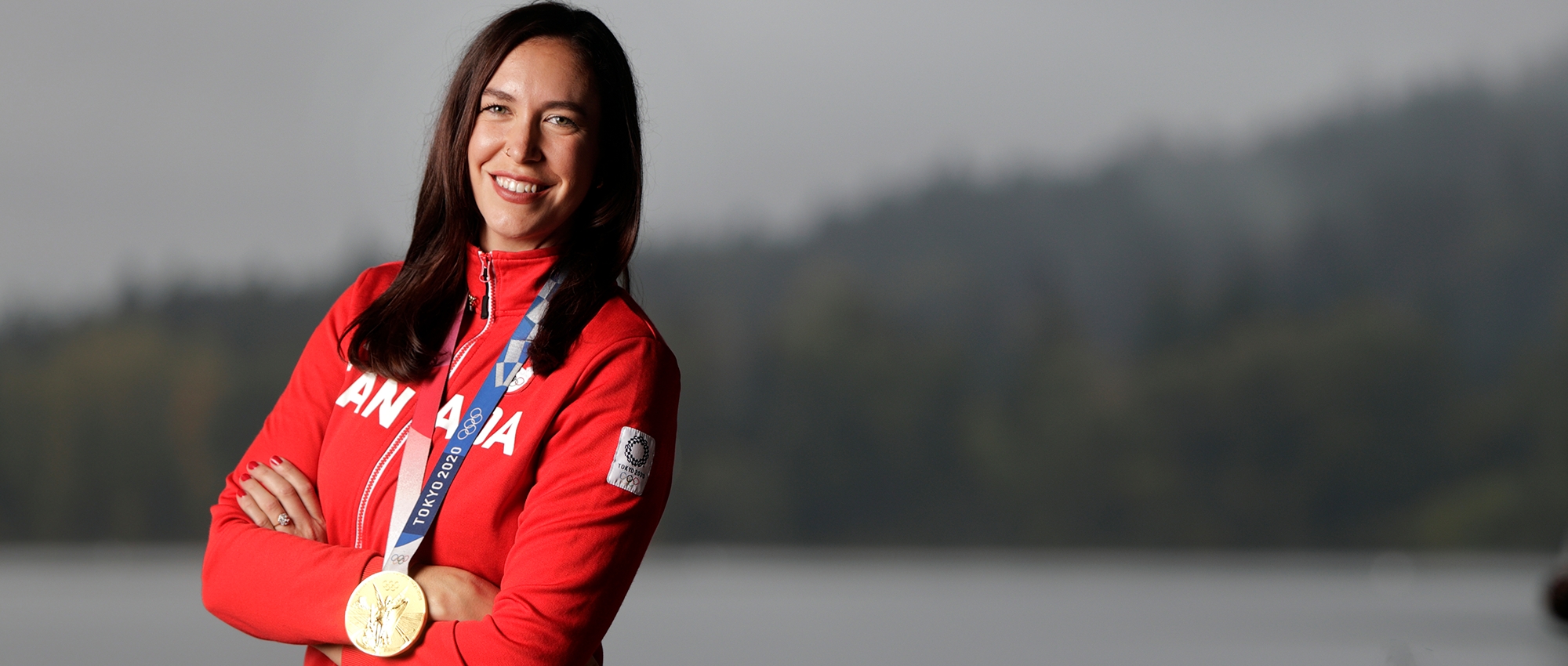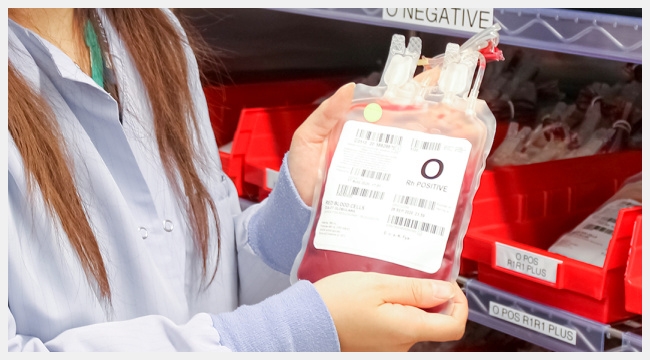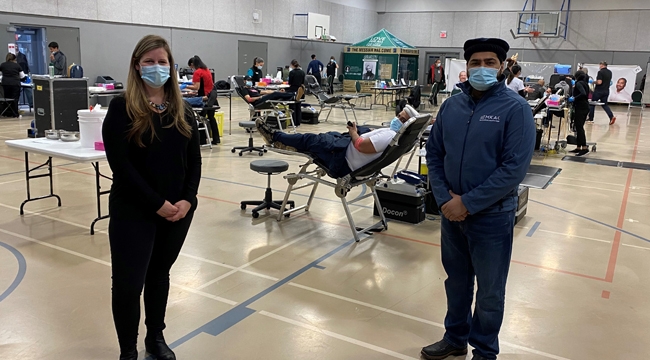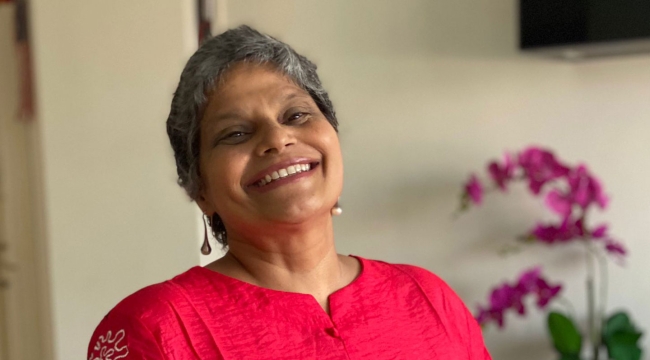Andrea Proske won Olympic gold last July. Now she’s making time to donate blood
For this champion rower, the little things add up — in life and in sport
(Photo by Kevin Light Photography)
Today, patients across Canada need donors more than ever. You can donate blood or plasma, join the stem cell registry, and register your intent to donate organs and tissues. Please give like lives depend on it — because they do.
While Canada’s winter Olympians have been fully focused on Beijing, one of the country’s summer medallists has been enjoying a bit of a break in the intensity of her training. And she’s used that break to support Canada’s Lifeline in a way she normally can’t.
Andrea Proske, 35, was part of the team that won Olympic gold in the women’s coxed eight rowing event in Tokyo last July. Getting to the top took years of hard work and sacrifice by every athlete on the boat. In Andrea’s case, it meant giving up something really important to her: donating blood regularly.
While she knew it was necessary for her athletic performance, she hated to give up an activity she’d embraced with her dad since her teens — and with some of the same competitive spirit she brings to rowing.
“My father and I would go in and have races to see who could donate the fastest!” says Andrea, whose blood type is O-positive. “Of course, you really have no control over the speed, but it was a fun thing to do as a family.”
The family tradition continues with Andrea’s father as well as her brother, a committed platelet donor who also donates plasma. Her fiancé has also overcome a fear of needles in order to begin donating regularly in her place. But in November, Andrea was pleased to also squeeze in a blood donation of her own, thanks to her more relaxed training schedule at the time.
She posted about that donation on social media. It was a way to do some good in her community in the wake of devastating floods in her home province of British Columbia.
“I got people posting back saying ‘I went today!’ or ‘I saw your post and that inspired me, and I’m going to donate [blood] too. And here’s a photo of me doing it.’ How amazing is it to have that impact in our communities?” she says.
Early days of pandemic were another chance to donate blood
The last time Andrea was able to donate was during another break in training — an unexpected and heartbreaking one. In March 2020, just four months before the Olympics were supposed to begin, COVID-19 forced the closure of the team’s training centre.
“We were almost there, and then the world shut down,” Andrea recalls. “These women I’d spent every day with, who knew every bit of spandex I owned, who I’d gone to war with, were now scattered across Canada.”
At that point, the fate of the Games was uncertain. Would they be postponed? Cancelled? Andrea scrambled to set up a makeshift gym in her parents’ garage and adorned it with Canadian flags, not really knowing what would happen next.
“You’re trying to do something that has never been done before: build an Olympic team over Zoom. How do you even do that?” she says.
Her coach started by attending to the team’s mental health. She got them connecting with each other in a new WhatsApp group she called Minds of Steel.
“I have to admit my mind didn’t feel like it was made of anything like steel at that particular moment,” Andrea recalls. “I didn’t want to train remotely. I didn’t want to sanitize my groceries. I wanted to race, or I wanted to sleep for a thousand years!”
So they started small. The teammates used the group to share favourite songs, or their intentions for the day or to encourage each other to go for walks.
“As you can imagine in a group of competitive women, pretty soon that changed into challenges for each other,” says Andrea. “How quickly can you drink half a litre of protein shake? How long can you hold your breath? Just fun things like that.
“And somewhere in between doing burpees in a taffeta prom dress and wearing your most outrageous hat to take the garbage out, we kind of found a way back to normal.”
During that time, Andrea also donated blood when she could. Just like the activities she was sharing with her teammates, it helped boost her mental health in that strange and isolating period.
“As athletes, we’re people of action. You want to do something, you want to get out there and help somehow, but how can you do that when the best thing you can do is stay home?” she says. “So I found that giving blood was one of the best ways to feel like I was contributing.”
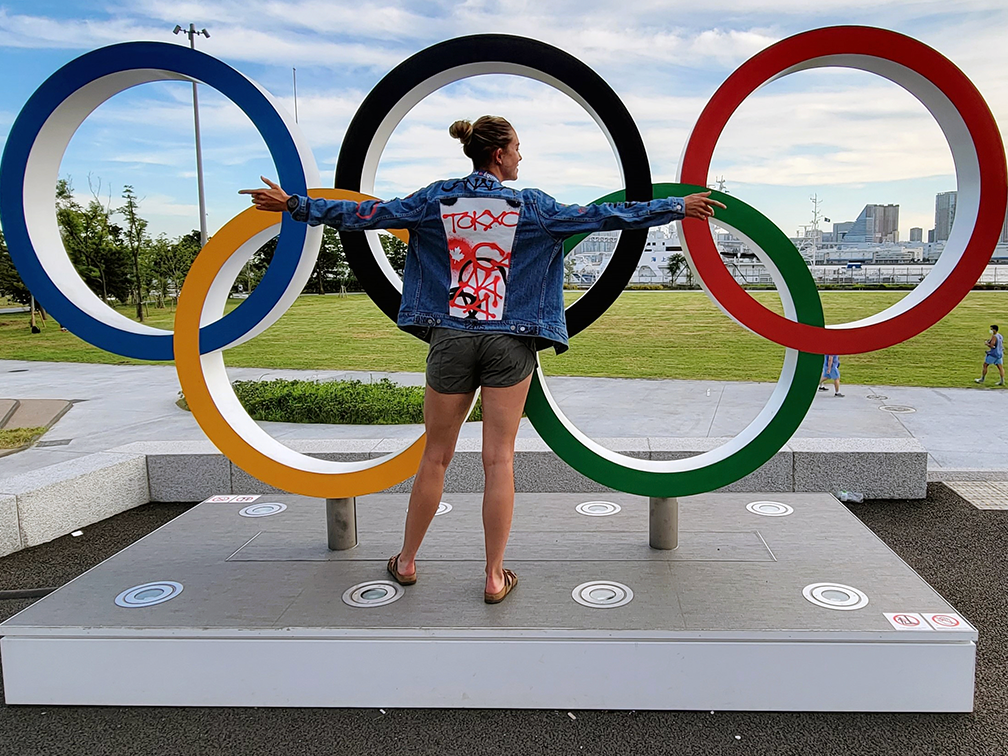
Andrea Proske was part of the team that won Olympic gold in the women’s coxed eight rowing event in July 2021.
‘Donating blood makes me a better person’
In Andrea’s sport, races are won and lost by just fractions of a second — including her own team’s gold medal race in July 2021.
“In order to be the best, you have to look at all those small ways that you can be better,” she explains.
The idea is that all those little ways add up to a lot of improvement. It’s a philosophy explored in one of Andrea’s favourite books, Atomic Habits by James Clear. The book opens with the story of how a cycling coach in Britain, Dave Brailsford, used the strategy he called “the aggregation of marginal gains” to transform a team of ordinary athletes into world champions.
It’s also a strategy for life well beyond Olympic competition. Constant striving to be just a little better, or to help a little more — including donating blood when she can — is part of Andrea’s own formula for a happy, productive and well-rounded life.
In fact, she’s hoping to squeeze in another blood donation appointment at the end of February, and inspire other athletes who don’t train intensely year-round to consider becoming blood donors themselves.
“Donating blood, or donating my time, or being part of contributing back to a community makes me a better person,” she says. “It makes me more connected, and it makes me feel like I have contributed to something outside my career. I’ve contributed to something bigger. And that’s a lot of the reason why I do it.”
